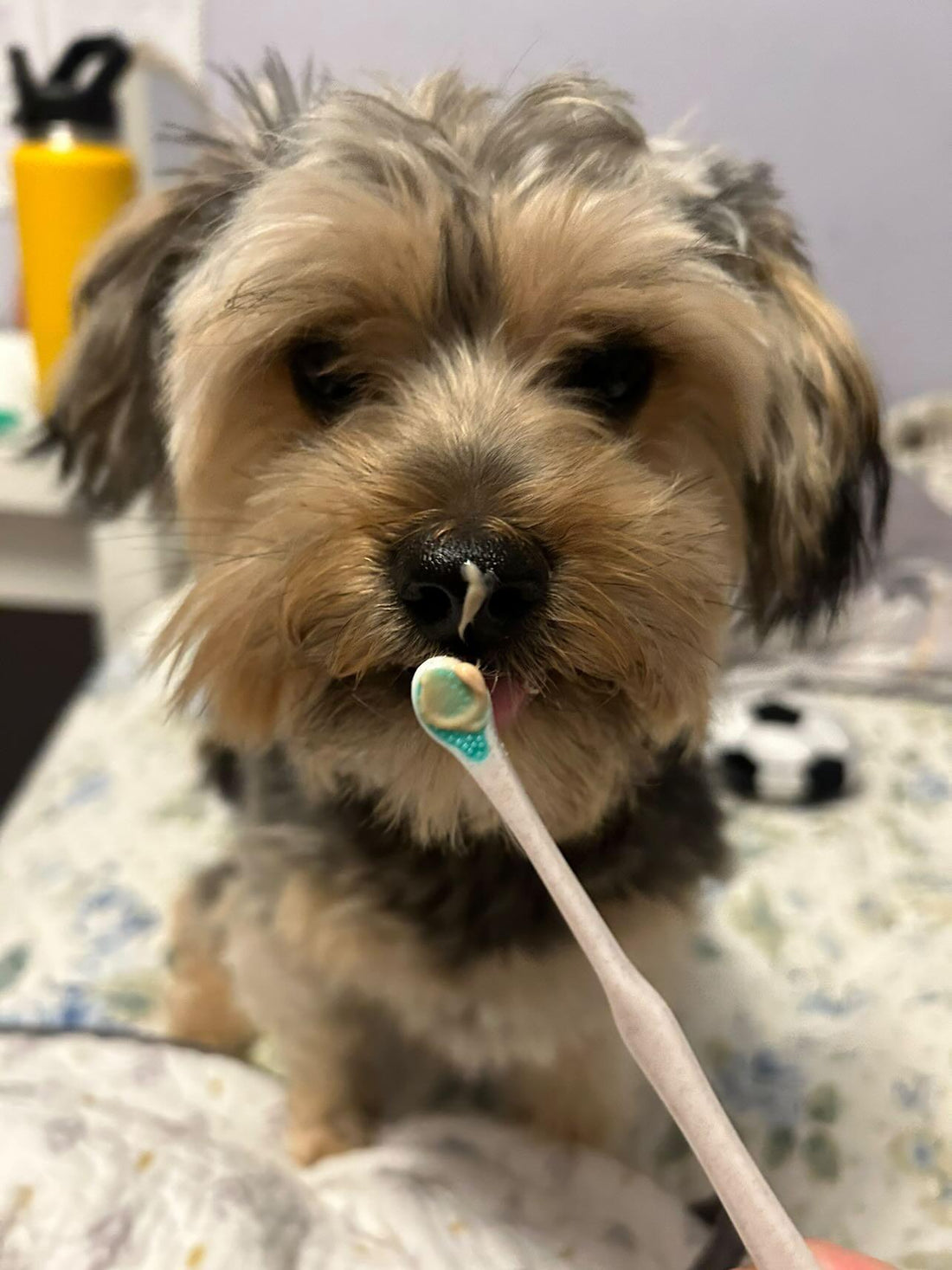February is not just about expressing love to your human companions; it's also National Pet Dental Health Month! While we often focus on our dogs' wagging tails and playful antics, their dental health is a crucial aspect of their overall well-being. Just like humans, dogs can suffer from dental issues, and neglecting their oral care can lead to serious health problems. So, let’s dive into some tips and tricks to keep those canine canines gleaming.
1. Regular Brushing is Key
Just as you brush your teeth daily, your furry friend needs regular brushing too. Invest in a dog-friendly toothbrush and toothpaste (Wag & Bright Supply - Puppy Polish natural toothpaste and brushes). Start slow to get your dog accustomed to the process. Aim for brushing at least two to three times a week and work your way up!
2. Chew on This: Dental Chews and Toys
Chewing is a natural instinct for dogs and a fantastic way to keep their teeth clean. Dental chews and toys specifically designed for oral health can help reduce plaque and tartar buildup. Look for products not too hard, like Yak Milk chews.
3. Healthy Diet, Healthy Teeth
A balanced diet not only contributes to your dog's overall health but also influences their dental well-being. Feed them high-quality dog food, and consider incorporating dental-friendly treats or raw food designed to promote oral health. Some foods, like carrots or apples, can also act as natural teeth cleaners.
4. Regular Vet Checkups
Routine veterinary checkups are crucial for monitoring your dog's dental health. Your veterinarian can identify early signs of dental issues, provide professional cleanings, and offer guidance on maintaining oral hygiene at home.
5. Stay Hydrated
Water is not just essential for overall health; it also plays a role in maintaining oral hygiene. Make sure your dog always has access to clean, fresh water. Proper hydration helps flush away food particles and bacteria that can contribute to plaque buildup.
6. Watch for Warning Signs
Keep an eye out for signs of dental problems such as bad breath, swollen or bleeding gums, difficulty chewing, or changes in eating habits. If you notice any of these signs, consult your veterinarian promptly.
7. DIY Fresh Breath Treats
Freshen your dog's breath with homemade treats. Mix chopped parsley or mint leaves into your dog's food or make frozen treats using yogurt and a hint of mint. Not only are these treats enjoyable for your pup, but they also contribute to better breath.
Conclusion
As responsible pet parents, it's our duty to ensure our canine companions enjoy a happy and healthy life. Prioritizing their dental care is a simple yet impactful way to contribute to their overall well-being. This National Pet Dental Health Month, let’s commit to brightening our furry friends' smiles and ensuring their pearly whites stay gleaming for years to come.
Remember, a little effort in dental care today can lead to a lifetime of wagging tails and joyful barks tomorrow!

